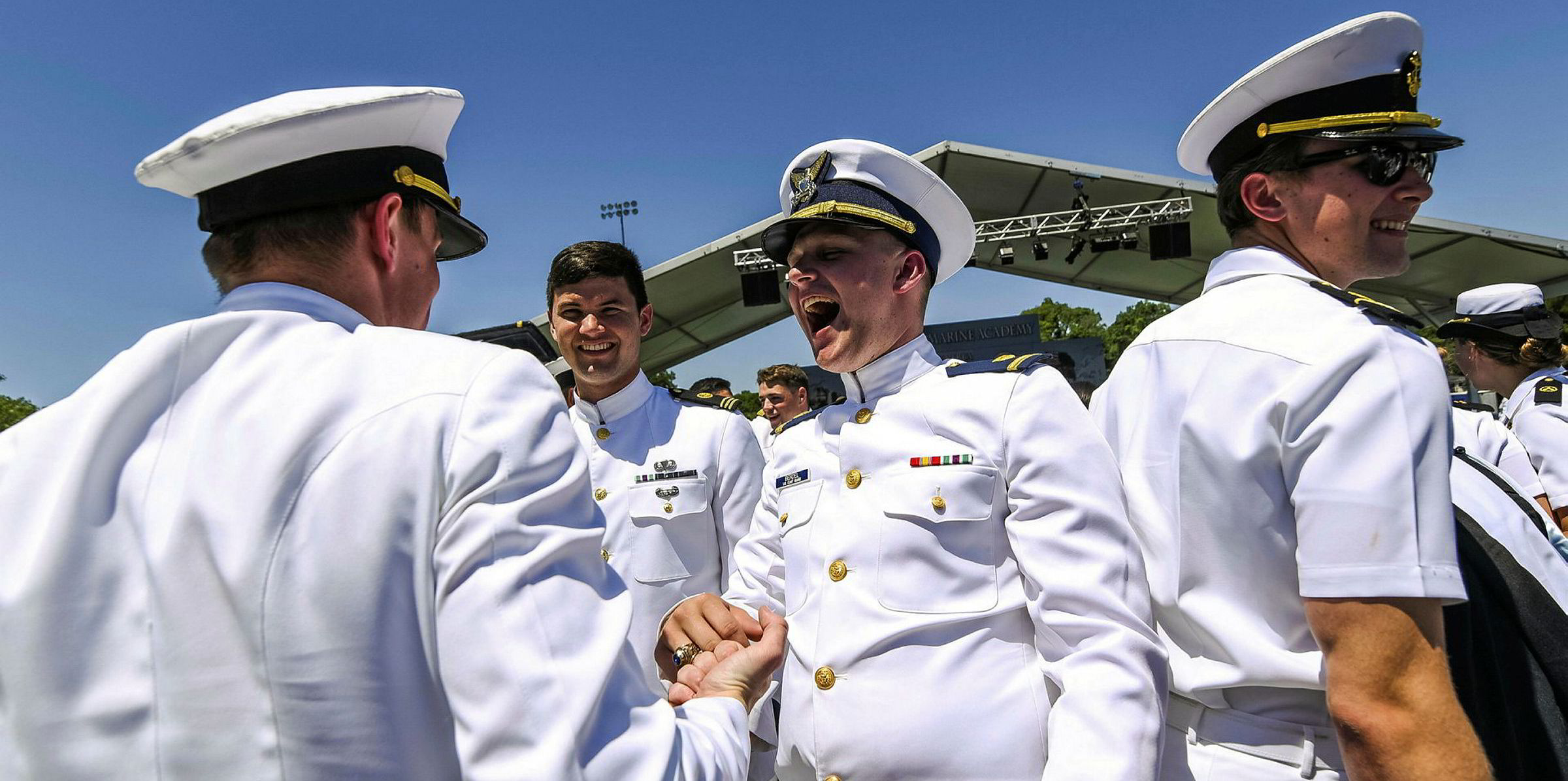One of the many lessons to be learnt from the Harvey Weinstein revelations is this: someone you know, even someone in your organisation, might be the victim of sexual violence. They may take years to come forward. Worse still, they might never come forward. Yet that doesn’t change the pain they have quietly suffered.
There’s no secret in this: shipping is still dominated by men, despite all the strides that women have made in the industry. And with men statistically far less likely to be the victims of sexual violence — and far more likely to be the perpetrators — it’s hard for many men to understand the impact of sexual harassment or sexual assault. And thus, it’s easier to be dismissive.
That is why it is so important to take seriously the efforts under way at the US Merchant Marine Academy in Kings Point, New York, and at other maritime schools aiming to stem sexual violence.
As we report in TW+ this week, two years after the leading training ground for US seafarers and many top shipping executives was the centre of controversy over its response to sexual assault and sexual harassment cases, a government watchdog agency has found critical gaps in its prevention and response programme.
In 2016, many in the maritime community complained that the government’s response, particularly the moratorium on the midshipmen’s year at sea on commercial vessels, was misguided.
Some questioned whether Kings Point was being unfairly singled out, because sexual violence is an issue on university campuses across the US, and they queried the data used to show the magnitude of the number of women and men saying in surveys that they were victims of sexual assault and harassment.
But some in the industry, reflecting on that period, have commented that this unwillingness to acknowledge that sexual violence is a problem worth all this attention served as a painful denial of the experiences of the young victims. They are right.
Data shows that the percentage of people who told surveys they were victims of sexual harassment or assault far outnumbers the percentage of victims who made a formal complaint.
To minimise the impact of sexual harassment on campus and in the workplace is misguided. The US Centers for Disease Control and Prevention includes sexual harassment in its definition of sexual violence because, as any victim of it will know, it is serious.
Moreover, the fact that sexual violence is a problem across universities does not detract from the seriousness of the problem at any one maritime academy. On the contrary, it validates the findings of the surveys at Kings Point and other institutions.
Even an organisation that has received no formal complaints of sexual violence might have a far greater problem than is being reported
Women make up an increasing percentage of the student body at maritime academies, just as they do in offices and on vessels across the shipping industry. Yet women remain a relatively small percentage of the total student body or workforce.
That only emphasises the need to have well-designed procedures for preventing and responding to sexual misconduct, both in the academy setting and in shipping companies.
I have heard shipowners say they do not have documented cases of sexual harassment and assault, so they don’t need to strengthen policies.
Shipping hasn’t had its #MeToo moment, at least not to a significant degree.
But the maritime academy surveys reported in TW+ this week show that even an organisation that has received no formal complaints of sexual violence might have a far greater problem than is being reported.
Addressing this can foster a virtuous cycle. By creating a welcoming environment for women in shipping, those women will bring a different perspective to workplaces across the industry — the perspective of more people who will advocate for better safeguards for women and who will better understand women who may be suffering in silence.
There are those in the maritime academy community who believe the #MeToo revelations that began in the entertainment industry, and have spread to many other areas of the corporate world, will encourage more cadets and midshipmen to come forward if they have been victims of sexual violence.
That means it will be time not to go on the defensive, but to listen.




